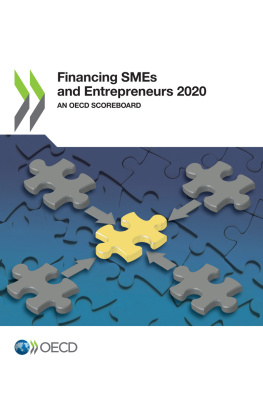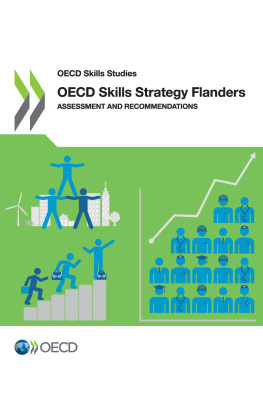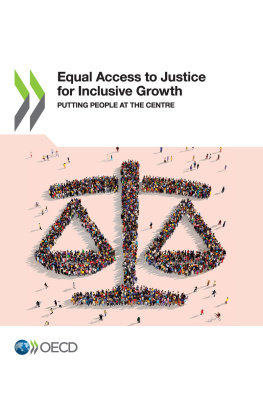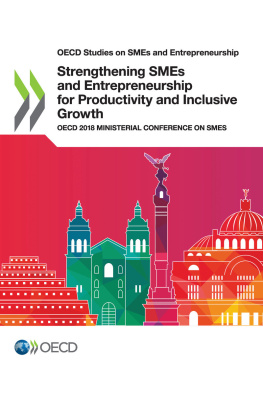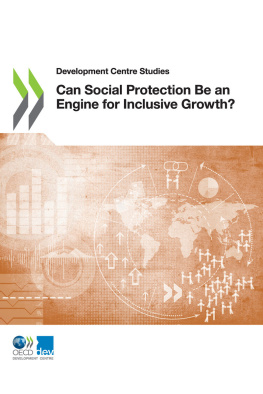OECD - Inclusive Business Creation
Here you can read online OECD - Inclusive Business Creation full text of the book (entire story) in english for free. Download pdf and epub, get meaning, cover and reviews about this ebook. year: 2016, publisher: OECD Publishing, genre: Business. Description of the work, (preface) as well as reviews are available. Best literature library LitArk.com created for fans of good reading and offers a wide selection of genres:
Romance novel
Science fiction
Adventure
Detective
Science
History
Home and family
Prose
Art
Politics
Computer
Non-fiction
Religion
Business
Children
Humor
Choose a favorite category and find really read worthwhile books. Enjoy immersion in the world of imagination, feel the emotions of the characters or learn something new for yourself, make an fascinating discovery.

Inclusive Business Creation: summary, description and annotation
We offer to read an annotation, description, summary or preface (depends on what the author of the book "Inclusive Business Creation" wrote himself). If you haven't found the necessary information about the book — write in the comments, we will try to find it.
OECD: author's other books
Who wrote Inclusive Business Creation? Find out the surname, the name of the author of the book and a list of all author's works by series.
Inclusive Business Creation — read online for free the complete book (whole text) full work
Below is the text of the book, divided by pages. System saving the place of the last page read, allows you to conveniently read the book "Inclusive Business Creation" online for free, without having to search again every time where you left off. Put a bookmark, and you can go to the page where you finished reading at any time.
Font size:
Interval:
Bookmark:
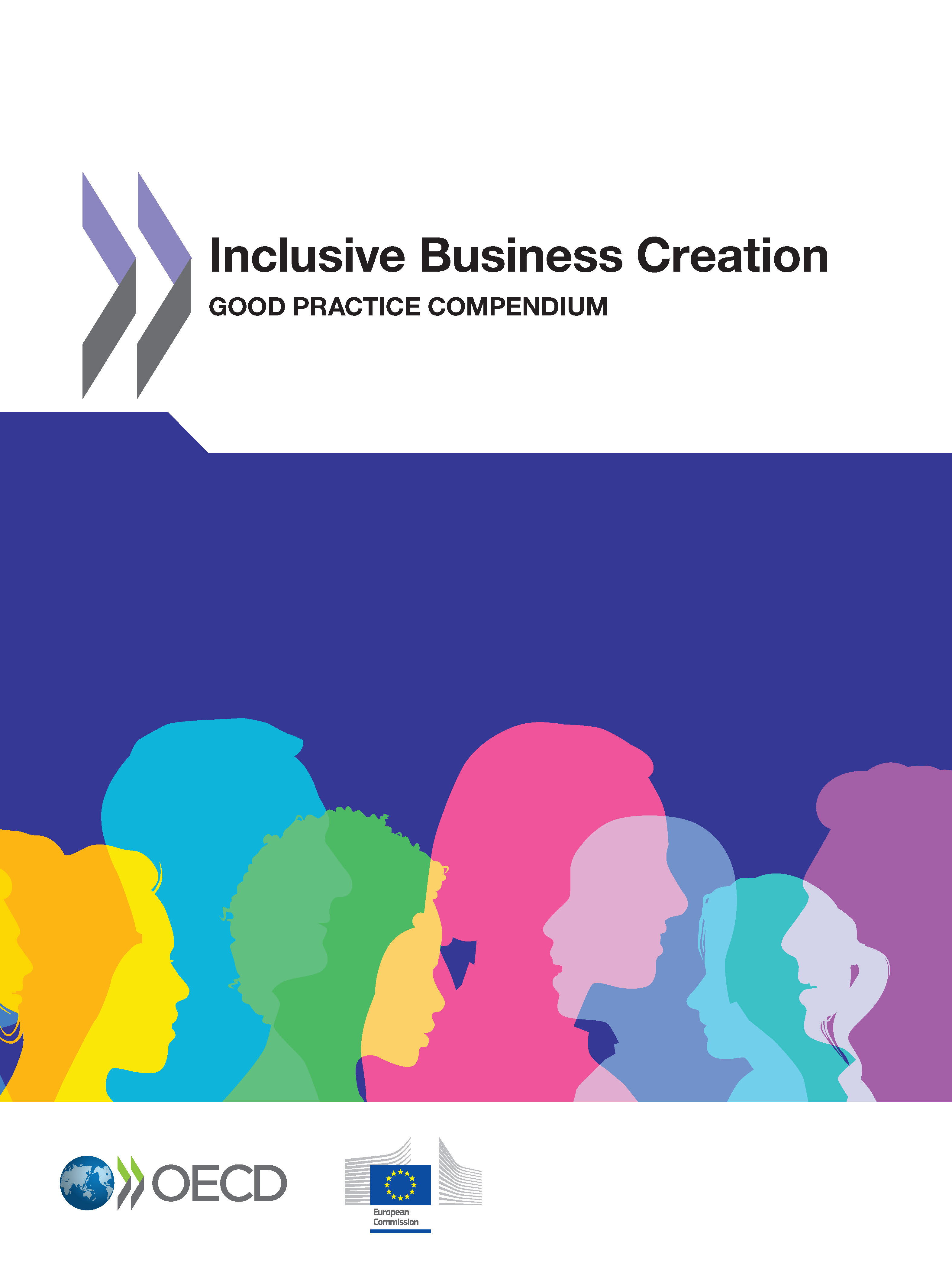
Flicitations et merci davoir tlcharg lun de nos tout nouveaux ePub en version bta.
Nous exprimentons ce nouveau format pour nos publications. En effet, mme si lePub est formidable pour des livres composs de texte linaire, le lecteur peut tre confront quelques dysfonctionnements avec les publications comportant des tableaux et des graphiques tout dpend du type de support de lecture que vous utilisez.
Afin de profiter dune exprience de lecture optimale, nous vous recommandons :
- Dutiliser la dernire version du systme dexploitation de votre support de lecture.
- De lire en orientation portrait.
- De rduire la taille de caractres si les tableaux en grand format sont difficiles lire.
Comme ce format est encore en version bta, nous aimerions recevoir vos impressions et remarques sur votre exprience de lecture, bonne ou autre, pour que nous puissions lamliorer lavenir. Dans votre message, merci de bien vouloir nous indiquer prcisment quel appareil et quel systme dexploitation vous avez utilis ainsi que le titre de la publication concerne. Vous pouvez adresser vos remarques ladresse suivante :
Merci !
Congratulations and thank-you for downloading one of our brand-new ePub-in-beta editions.
We're experimenting with this new format and, while ePub is fantastic for books with linear text, for books with charts, tables and graphs weve found some things may not work perfectly it depends on the device youre using.
So, for an optimal reading experience, we recommend:
- Using the latest version of your devices operating system.
- Reading in portrait mode.
- If large tables are tricky to read, try reducing the text size.
As this is an ePub-in-beta edition, we would be glad to receive feedback on your reading experience, good or otherwise, so we can improve for the future. When writing, please let us know which device/operating system you were using and the title of the publication. Write to:
Thank you!
OECD/EU (2016), Inclusive Business Creation: Good Practice Compendium, OECD Publishing, Paris, http://dx.doi.org/10.1787/9789264251496-en.
Stimulating successful business creation across all sections of society is an important requirement for achieving smart, sustainable and inclusive growth and responding to economic and social challenges in European Union countries. Entrepreneurship can respond to high rates of unemployment and low levels of labour market participation which are often concentrated in particular sections of society by enabling people to create their own jobs and jobs for others. It is fundamental to the emergence of a more entrepreneurial economy in which new firms offer new solutions to social, economic and environmental challenges. However, many people face barriers to entrepreneurship. They include access to finance, lack of appropriate skills, and lack of business networks. These obstacles are often more important for people from groups that are disadvantaged and under-represented in entrepreneurship, who often face additional barriers related to attitudes, motivations and welfare systems that discriminate against entrepreneurship. Both business development policies and active labour market policies have a role to play in helping overcome these problems. Appropriate actions can be taken at national, regional and local levels and targeted at key groups such as youth, women, seniors, the unemployed, immigrants, ethnic minorities and people with disabilities. This compendium identifies the types of policy approaches that work in overcoming the problems and discusses key factors for their successful implementation.
It is intended to inspire policy makers in Europe and beyond to introduce new national and local actions to give people from all parts of society the opportunity to succeed in business creation and self-employment, drawing on experiences that have been tried and tested elsewhere. Relevant actions can be piloted and implemented using a range of local, regional, national and European Union funds that are available for this purpose, including the European Structural and Investment Funds and national active labour market policy resources, but appropriate plans and proposals have to be put into place and implemented. This compendium contains a variety of examples of approaches that can be taken. The descriptions of these policy actions not only present the programmes activities, but also discuss the challenges faced in their development and implementation, and the keys to successfully transferring the approach to a different context. The intention is to help transfer the experiences and lessons learned so that others can avoid common pitfalls and achieve results more quickly.
This compendium is part of an on-going collaboration on inclusive entrepreneurship between the Centre for Entrepreneurship, SMEs and Local Development of the Organisation for Economic Co-operation and Development (OECD) and the Directorate-General for Employment, Social Affairs and Inclusion of the European Commission. One of the key objectives of this collaboration is to support capacity development for policy makers through the provision of evidence and guidance on what works. Other outputs available include a series of policy briefs and a set of Missing Entrepreneurs reports that provide policy advice on specific target groups and policy tools. For more information on this work programme, please refer to: www.oecd.org/employment/leed/inclusive-entrepreneurship.htm .
This report results from a collaboration between the Local Economic and Employment Development (LEED) Programme in the Centre for Entrepreneurship, SMEs and Local Development of the OECD and the Directorate General for Employment, Social Affairs and Inclusion of the European Commission.
Font size:
Interval:
Bookmark:
Similar books «Inclusive Business Creation»
Look at similar books to Inclusive Business Creation. We have selected literature similar in name and meaning in the hope of providing readers with more options to find new, interesting, not yet read works.
Discussion, reviews of the book Inclusive Business Creation and just readers' own opinions. Leave your comments, write what you think about the work, its meaning or the main characters. Specify what exactly you liked and what you didn't like, and why you think so.






